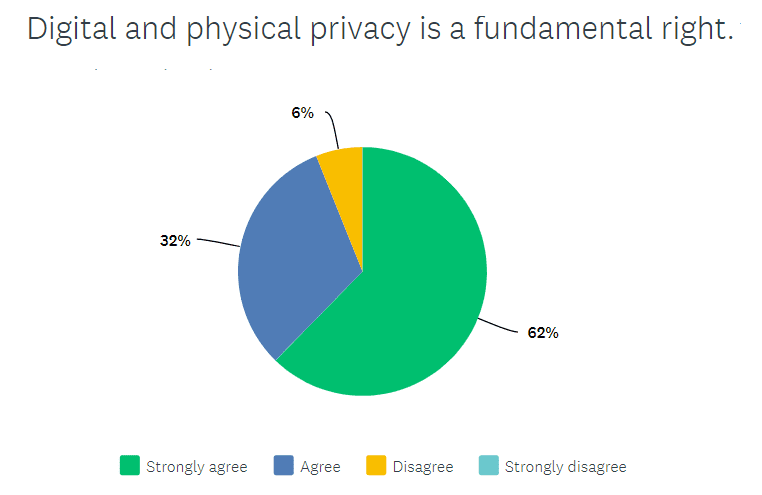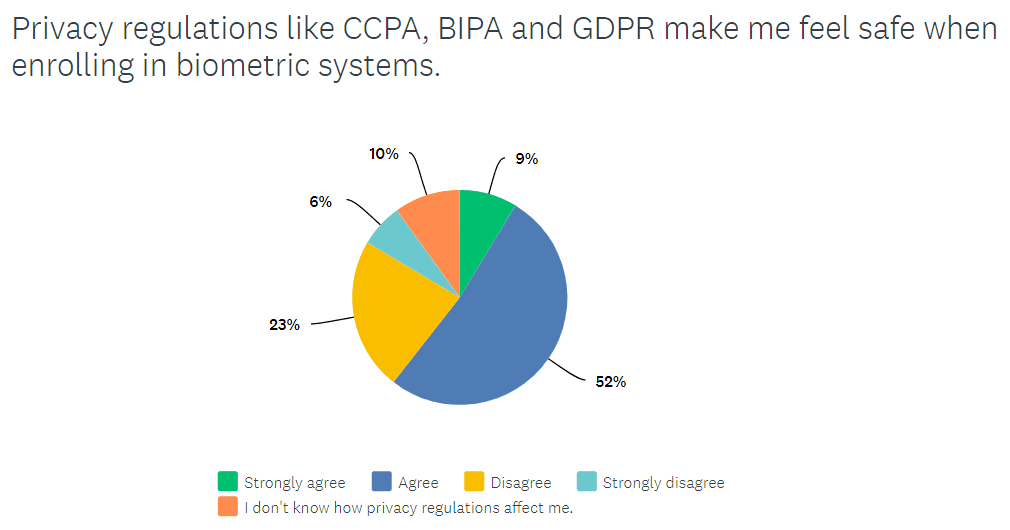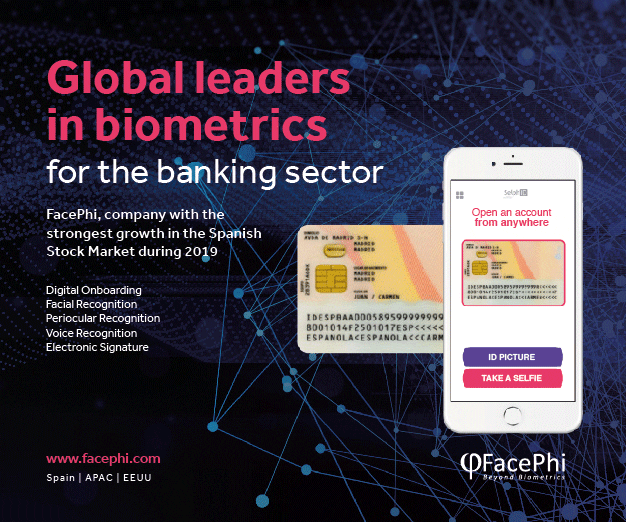In today’s tech landscape, the issue of privacy is increasingly in the foreground. Consumers have been grappling with this issue for years as the rise of the internet and the smartphone have brought huge amounts of user data and Personally Identifiable Information (PII) into the hands of marketers, government officials, and malefactors. But in recent years, biometric technology has further heightened the privacy issue, with technological advancements in areas like facial recognition bringing new privacy concerns into the spotlight.
It’s an important trend, and to understand it, it’s worth trying to figure out how the people behind these and similar technologies actually feel about it. And a great way to do that is to consult the results of the latest FindBiometrics Year in Review survey. This year’s edition saw the participation of over 230 individuals, many of whom work directly in biometrics or in adjacent areas.
One of the most important takeaways from the survey results is that the overwhelming majority of people in this industry appear to care deeply about privacy. In response to the prompt, “Digital and physical privacy is a fundamental right,” 94 percent of respondents agreed, with 32 percent indicating that they strongly agree. Of the small group who dissented, none disagreed strongly.

This suggests that however biometric technologies end up being used in real world deployments, the people involved in developing them want consumers’ and citizens’ privacy protected. And it highlights a key distinction that has emerged in the debate over facial recognition: people are not so much troubled by the technology itself as they are by how it is used. iPhone users have not been outraged about the idea of using facial recognition to unlock their devices, but many have been troubled by how this technology has emerged in police and state surveillance, especially in places like China.
Regulation, then, must be a particularly important component of the privacy discussion. But it’s here that things get a bit murky. The Year in Review also asked how respondents felt about the statement, “Privacy regulations like CCPA, BIPA and GDPR make me feel safe when enrolling in biometric systems,” and the results were mixed. Fifty-two percent agreed, and another nine percent strongly agreed; but 23 percent disagreed, and an additional six percent strongly disagreed. Importantly, a sizeable chunk – 10 percent – answered, “I don’t know how privacy regulations affect me.”

These results reflect a broader confusion when it comes to privacy regulations. For the most part, regulators and legislators are only just starting to come to grips with these new technologies and their impacts on privacy, and standards vary. Bans of facial recognition technology – or at least its use by government agencies – have been implemented in some places but not others; hardly any states in the US have laws pertaining to biometrics privacy, but Illinois’ Biometrics Information Privacy Act (BIPA) has resulted in a multitude of lawsuits, and a recent, huge payout from Facebook in a class action case. It’s still very much the wild west, and while those within the biometrics industry seem to really care about privacy, it’s now up to legislators to figure out how to protect it.
*
The 2019 FindBiometrics Year in Review is made possible by our sponsors: Aware, Inc., Clear, IDEMIA, SecuGen, Iris ID, FacePhi, Jumio, BioConnect, BIO-key.
–
January 31, 2020 – by Alex Perala








Follow Us